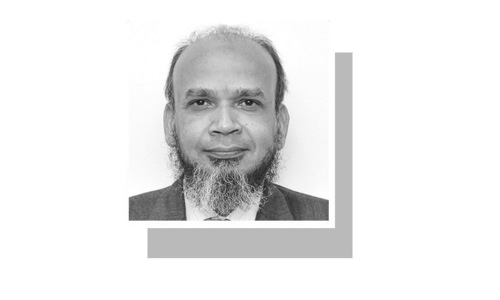Pakistan has the second highest household expenditure on education of any country in the South Asian region, according to a United Nations Educational, Scientific and Cultural Organisation (Unesco) report released on Friday.
The 'Global Education Monitoring Report 2021-22' says families are covering 57 per cent of education expenditure, with the poorest struggling to meet school expenses.
The country with the highest expenditure in Central and Southern Asia is Bangladesh (71pc), while Nepal has the third highest (50pc).
Approximately a third of all children in Pakistan going to primary and secondary schools are studying at private institutions. "Overall, enrolment rates in education are low in Pakistan, which has fed a rise in the enrolment in private institutions," the report said.
"In total, households with children in private schools accounted for about 80pc of all spending on education in the country," the report said. Families in urban areas spend five times as much if their children attend non-state schools than if they attend state schools.
Pakistan does regulate the amount of fees that can be charged to go to non-state schools, but the report noted that despite these regulations, these costs can still represent nearly half of the income of parents living on the state poverty line.
Priced this way, the result is that 45pc of the richest in the country compared to only 11pc of the poorest go to private schools, the report said.
Quoting a figure from 2017-18, the report says 4.1 million students were studying in more than 31,000 deeni madaris, free religious educational institutions for the poor from pre-primary to post-secondary level.
They represent 8pc of overall enrolment and 18pc of enrolment in private educational institutions.
Warning of growing inequality and exclusion due to high costs of private education coupled with weak regulation by states, the report said that 40pc of pre-primary pupils, 20pc of primary pupils and 30pc of secondary and tertiary students are now educated in non-state schools worldwide.
However, the report said that many countries lack adequate regulations on private education or the capacity to enforce them, potentially widening the educational divide between the rich and the poor.
The report said that only 27pc of countries explicitly prohibit profit-making at primary and secondary schools, which runs counter to the vision of 12 years of free education for all.
Over half of the countries prevent student admission procedures in schools, and only 7pc of countries have quotas that enhance access to schools for disadvantaged students through initiatives.
Further, only half of the countries have regulations on private tuition.













































